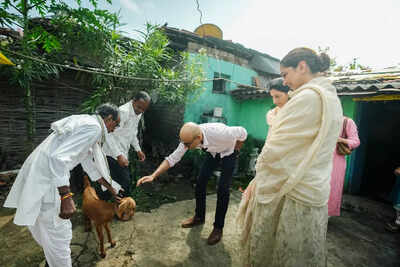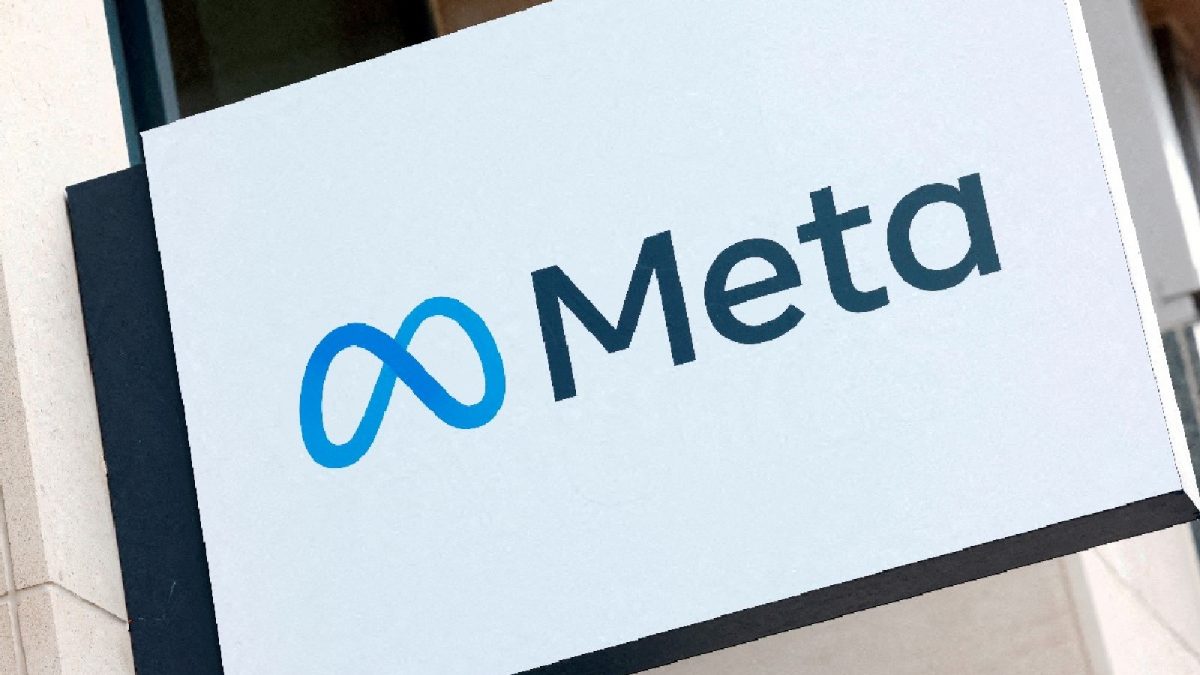ARTICLE AD BOX

(R-L) Deepika Padukone, Anisha Padukone, and Dr Shyam Bhat with Jeetu Pawde and his father, one of the beneficiaries of the program
From tackling reliance on faith healers to providing livelihood support, LiveLoveLaugh Foundation’s intervention is rooted in the community At a government building in Madhya Pradesh’s Chhindwara district, 35-year-old Jitendra Pawde, fondly known as Jeetu, stands nervously underneath a whirring ceiling fan.
At first, he’s shy, struggling to find the right words and shuffling his feet.
But after a few seconds, he opens up and begins sharing his mental health journey. “It was in 2019 when I fell seriously ill. I went to a private hospital nearby and spent Rs 3,000-4,000 each month. After a while, when medication didn’t help much, the doctors recommended shock therapy. I got scared, and the financial burden started mounting too,” Pawde says.
From a low-earning family of farmers, Jeetu’s father had to borrow funds and shift his treatment to Nagpur. However, due to the COVID-induced lockdowns, the treatment abruptly came to a halt, and Jeetu’s condition worsened rapidly.
His family then decided to resort to faith healers, and Jeetu was left at multiple dargahs for nearly two years, hoping for a miracle. During this time, the family spent nearly Rs 2-3 lakhs, but no results arrived.
“I didn’t know what was happening to me, and jumped into a well to end my life,” he says. It was then that a few villagers saved his life. A few months after the incident, Sandhya, a volunteer from The LiveLoveLaugh Foundation (TLLLF), reached out to Jeetu, and suggested a visit to the psychiatrist who had started doing free-of-cost weekly visits in the village. These weekly check-ups were part of TLLLF’s rural mental health program in Chhindwara, which began in January 2023, covering 60 villages in the Sausar block.
Founded by Bollywood actor Deepika Padukone in 2015, TLLLF had previously worked in rural areas like Davangere in Karnataka, Kangra in Himachal Pradesh, Idukki in Kerala, and Koraput in Odisha. Like these regions, Chhindwara faced many challenges. According to MP’s National Mental Health Survey report 2015-16, the lifetime prevalence of mental disorders in the state is 16.7%, with a treatment gap of 91%. As Jeetu’s story showed, reliance on faith healers, babas, and quacks is high, and access to affordable medical resources is low.
TLLLF then partnered with the Gramin Adiwasi Samaj Vikas Sansthan (GASVS), which works with marginalised communities, especially those with physical and psychosocial problems. Weekly psychiatrist visits, free medicines, and regular follow-ups were introduced, while enrollment in government disability pension schemes was encouraged. The role of the community was emphasised, and local support groups formed in order to fight stigma, looping in ASHA workers and volunteers known as ‘Man Mitras’.Deepika, who met Jeetu and other beneficiaries in October, says tapping into the local communities has been crucial to the intervention and has dispelled many myths about the urban-rural divide in mental health. “Interestingly, rural India has been far more open and receptive to mental health issues in my experience in the couple of visits that we've done. I'm amazed by how open they are to seeking help, and creating awareness within the communities.
Those who have received treatment and are recovering are going out there and encouraging more others in their community to seek help,” says the actor, who has been vocal about her own battle with depression. One such person who is now motivating others to seek help in the district is 55-year-old Dharamdas, who became a beneficiary in 2024 and was diagnosed with severe anxiety and PTSD, with the conditions dating back to 2007.
“Before getting in touch with a field worker from GASVS, I was quite apprehensive about my life,” he says. Now in a stage of recovery, he gets a pension of Rs 1,200 a month through the program and also chairs the local caregiver group.

.
Deepika Padukone and Dr Shyam Bhat in conversation with beneficiary Dharamdas, who now chairs a local carer group in the districtAnother area of emphasis of the program is the creation of livelihood opportunities.
Dharamdas was provided with a paper-plate making machine, while Jeetu was given two goats for rearing. Such avenues are crucial in order to ensure not just financial well-being, but also help boost the self-confidence of recovering patients, says Anisha Padukone, CEO of TLLLF. “Once someone is on the path to recovery, it helps to have a sense of purpose and something to work towards.
The ability to contribute financially to the family's income is also a huge factor because we have heard from beneficiaries that sometimes they feel like they're a burden on the family,” she adds.It’s not just the patients who are provided these forms of support, but also their caregivers. In a lot of instances, caregivers themselves become persons with mental illness over time just because of the burden of care, Anisha says. Under the Chhindwara program, 32 caregiver support groups have been formed at the village level, enabling caregivers to move from isolation to leadership, facilitate government linkages for other beneficiaries, and engage in panchayat-level advocacy.
They’re provided counselling, but also informed about simple things like how to understand prescriptions, and use visual symbols to remember the medicines and timings. This is as crucial to battling mental health as it is to physical health, says Deepika. “While we talk about mediation, destigmatisation, awareness, and community, the role of caregivers is crucial for any person with mental illness to recover.
Dharamdas had his brothers by his side, while Jeetu’s father and mother supported him through this journey. In my case, my entire family and some of my friends were with me on that journey,” she points out. Nalini Ghodmare, an anganwadi worker whose son suffered from seizures for years, says now villagers walk up to her, and are keen to enroll for check-ups. She was provided with multiple counselling sessions to understand her son’s condition, especially the outbursts of anger he frequently displayed.
He was linked to the district mental health program at Jam Sawli in January 2024 and began receiving home medicine delivery assistance, along with a monthly pension.
While reliance on faith remains steady, there’s an increasing awareness about finding the right scientific treatment, Ghodmare points out. Dr Shyam Bhat, psychiatrist and chairperson of TLLLF, says dawa and dua can go hand-in-hand, as long as people are warned about falling prey to exploitative and harmful quacks — both religious and otherwise. A decade into LLL’s work, he says the foundation is now keen to push for standardisation and regulations of therapeutic practice in India, which does not simply copy Western models. “Psychotherapy rests on cultural nuances. For it to resonate with communities, it has to be rooted in the society, culture and nature,” he adds.

 4 hours ago
5
4 hours ago
5









 English (US) ·
English (US) ·